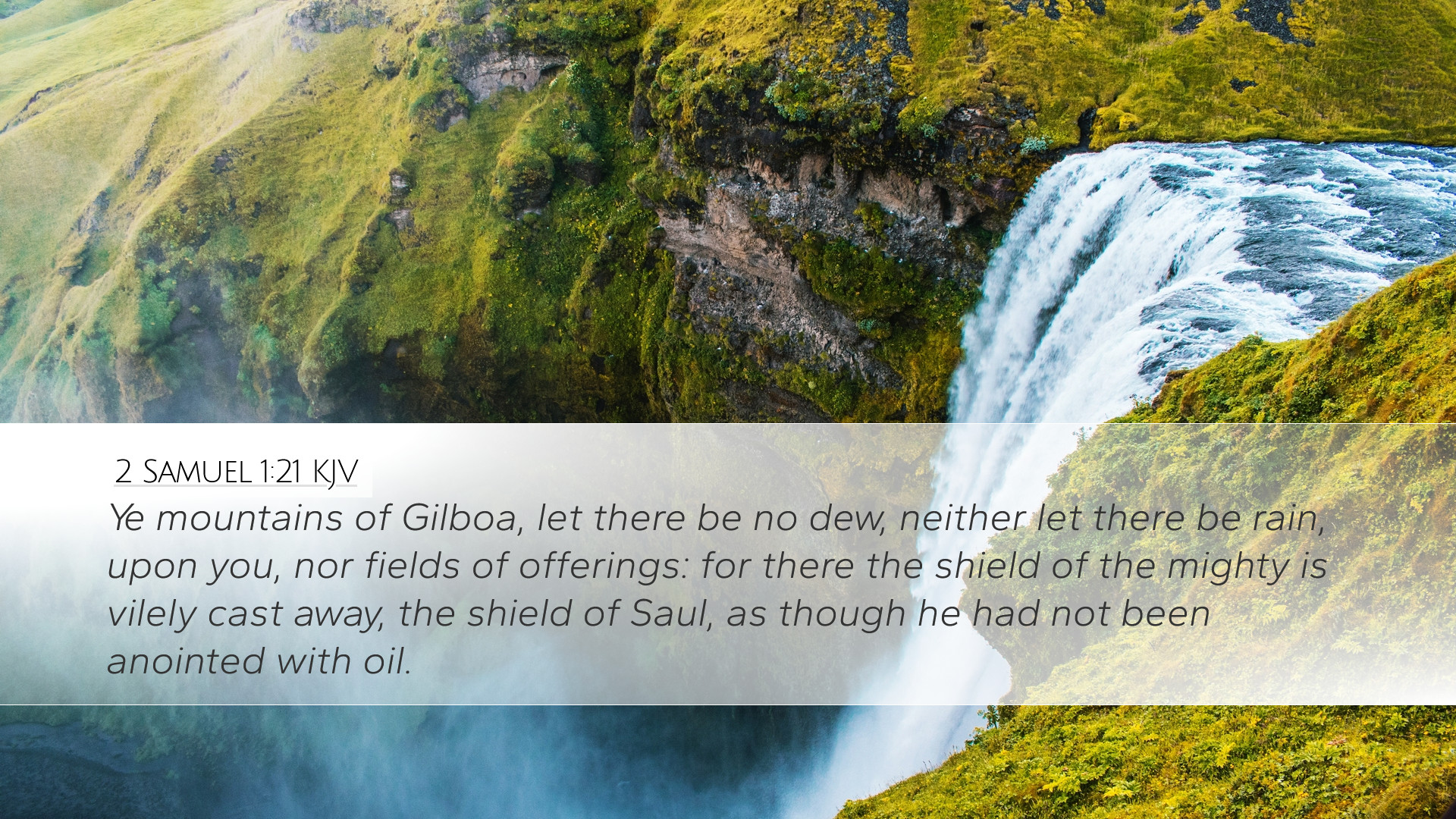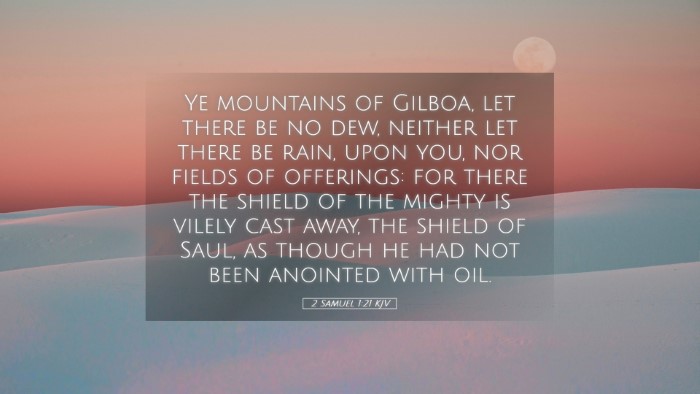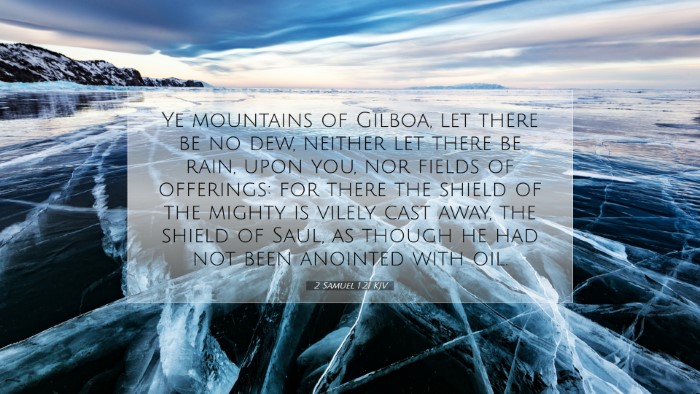Commentary on 2 Samuel 1:21
Verse (2 Samuel 1:21): “O mountains of Gilboa, let there be no dew or rain upon you, nor fields of offerings! For there the shield of the mighty was defiled, the shield of Saul, not anointed with oil.”
Introduction
This poignant verse encapsulates the profound sense of loss and lamentation that follows the death of Saul and Jonathan. It reflects David’s grief and the public mourning of Israel’s fallen king. To comprehend the depth of this passage, we delve into insights from various public domain commentaries that highlight its theological implications and historical context.
Literary Context
2 Samuel 1 serves as a transition in the narrative between Saul's reign and David's ascension. The lamentation over Saul and Jonathan is not merely a personal expression of David's sorrow, but a broader reflection on the national tragedy experienced by Israel. This chapter is often seen as a lament, pointing to the intertwining of personal and national identity.
Verse Breakdown
- "O mountains of Gilboa"
The mountains signify a place of battle and memory where the mighty fell. The lament directed at Gilboa highlights the significance of the location and the emotional weight carried by its geography.
- "Let there be no dew or rain upon you"
This phrase denotes a curse upon the land, suggesting that the beauty and fertility of Gilboa are marred by the tragedy of the events that transpired there. It reflects David’s deep mourning that extends beyond the personal loss to the land itself.
- "Nor fields of offerings!"
David’s lament underscores a loss of divine favor. In ancient Israel, offerings were a vital part of worship and acknowledgment of God’s presence. The absence of rain signifies the withdrawal of God’s blessing.
- "For there the shield of the mighty was defiled"
This line articulates the disgrace of Saul, who in life was revered as a mighty warrior. The idea of his shield being defiled conveys the shame associated with defeat and death, particularly for the one who was anointed to be king.
- "The shield of Saul, not anointed with oil"
Oil represents consecration and blessing. The mention of Saul’s shield being “not anointed” symbolizes not only his physical defeat but also a spiritual disfavor that led to his downfall. It reflects the tragic irony of his life—instead of leading Israel to glory, his reign ends in lamentation.
Theological Reflections
David's lament is rich with theological implications. It speaks to the gravity of sin and disobedience against God, which ultimately led to Saul's death. Pastors and theologians may draw on this verse to illustrate the consequences of turning away from God's will and the importance of remaining in faithful obedience.
Commentary Insights
Matthew Henry
In his commentary, Henry expounds on the tragic elements of Saul’s life and reign, noting that the mountains of Gilboa, once a scene of victory, are transformed into a symbol of disgrace. He emphasizes David’s leadership, which recognizes the need to mourn not only for personal loss but also for the collective grief of the nation. This acknowledgment is critical in understanding the communal aspects of mourning in Israel’s culture.
Albert Barnes
Barnes elaborates on the implied relationship between the land and its leaders, suggesting that the downfall of a king brings about a desolate landscape as a reflection of moral and spiritual decay. His insight into the cultural significance of offerings connects to Israel's covenant relationship with God, elevating the lament beyond emotional grief to theological lament.
Adam Clarke
Clarke emphasizes the poetic nature of David’s lament and its rhetorical power. He analyzes the imagery of dew and rain as essential symbols of life and blessing in Scripture. Clarke’s insights point to the hope and restoration that David’s leadership would eventually bring, subliminally directing the narrative toward God’s redemptive plan even in the wake of tragedy.
Conclusion
2 Samuel 1:21 serves as a profound reminder of the reality of loss in the life of faith. It invites pastors and theologians to reflect on the implications of leadership, covenant, and collective memory within the community of faith. The power of lament is not only in mourning the dead but also in revealing deeper truths about God’s sovereignty, justice, and grace. It poignantly illustrates that every end in God’s narrative opens the door for new beginnings, ultimately pointing toward the hope found in Christ.


